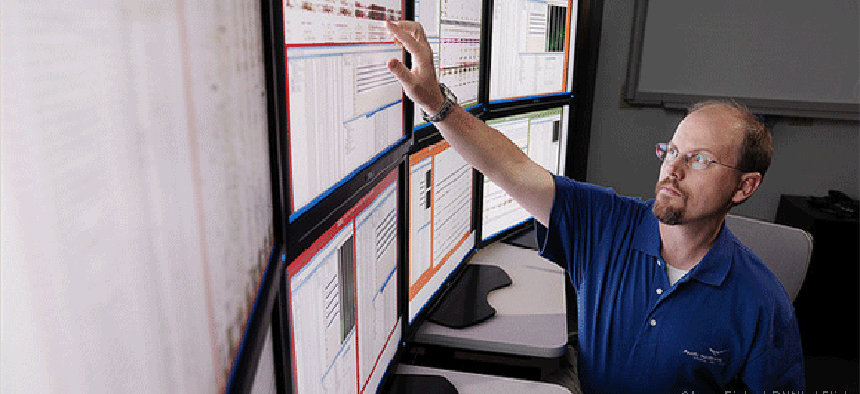Energy lab, university aim to get next-gen computing ready for big data


Connecting state and local government leaders
Researchers will work to ensure the next generation of computers and the methods used to run them can address the upcoming big data challenges, from climate change to energy management.
The Energy Department’s Pacific Northwest National Laboratory in Richland, Wash., and the University of Washington are forming the Northwest Institute for Advanced Computing to tackle big data computing and methodology.
Researchers associated with the institute will work to ensure the next generation of computers and the methods used to run them can address the upcoming big data challenges, from climate change to energy management, the lab said in its announcement.
“The expanded partnership between UW and PNNL will create tremendous new opportunities for both organizations,” Ed Lazowska, professor of computer science and engineering, said in the university's statement. “Big data is transforming the process of discovery in all fields. UW and PNNL have significant and complementary strengths.”
Working on UW's campus in Seattle, university and PNNL researchers will jointly explore advanced computer system designs, accelerate data-driven scientific discovery and improve computational modeling and simulation, focusing on areas such as computational physics, big data, cybersecurity and computing for the smart grid, according to PNNL Fellow Moe Khaleel, who directs PNNL's Computational Science and Mathematics research division.
The institute will draw on UW's expertise in computer science, engineering, applied math and natural sciences, and PNNL's expertise in designing high-performance computers and running large-scale environmental simulations.
Institute members will use existing high-performance computing resources. UW's Seattle campus houses the Hyak shared, high-performance computer cluster, and the PNNL Institutional Computing program features the 162-Teraflop Olympus supercomputer. Cloud resources also will be used extensively, the university said.
The two institutions already collaborate on the Pacific Northwest Smart Grid Demonstration Project. The two-year project is helping determine how a smarter grid can avoid congestion in the electricity transmission system and how more wind power can be used.
According to the university, initial projects for the new partnership will include algorithms and software for large graph analyses, smart grid simulation and encryption for cloud computing.





